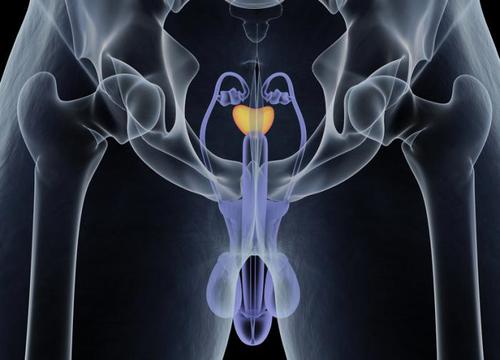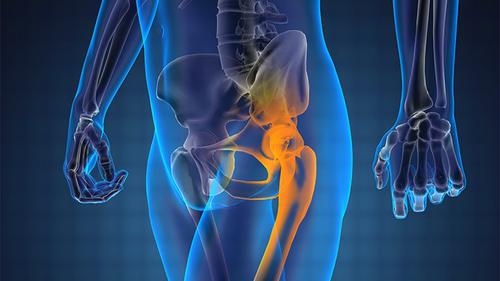Prostate Cancer Spreads to Bones - Symptoms and Treatments
While many people know what prostate cancer is, not as many know the term metastatic prostate cancer. Basically, this happens when prostate cancer spreads to bones. It can bring with it a whole new set of problems, symptoms, and required treatments. Today we are helping you understand what happens when prostate cancer spreads to the bones, how you can spot the symptoms, and also let you understand just how dangerous it can be.
Better Understanding of Metastatic Prostate Cancer
Here we are looking at what metastatic means and what some of the symptoms are and what happens when prostate cancer spreads to the bones. Please make sure that if you do have any concerns, you talk to your doctor right away.
As amazing miracle workers as doctors are, they can sometimes forget that we do not know all their jargon. Do not worry though, as we will make it easy to understand what prostate cancer becoming metastatic is. Prostate cancer is not always contained in the prostate. It can spread around the body. While we are talking about it spreading to the bones here, it can also spread to lymph nodes, the lungs, and even the liver. In very rare occurrences, even the brain can be affected.
Even when the prostate cancer spread to bones, it is still called prostate cancer. The reason for this is that, let's say for example prostate cancer spreads to a person's hip bone. It does not then magically become bone cancer. It is still prostate cancer. This is because the cells that make up the cancer are those same cells that make up the prostate cancer. The easiest way to think of the term "metastatic” is that it is cancer moving to another part of the body.

Common Symptoms of Prostate Cancer
-
Bladder Issues: Having trouble urinating is one of the most common symptoms of prostate cancer. The reason for this is how close the prostate and the bladder are. Prostate cancer can press onto the bladder which is one of the first telltale signs that there may be a problem. Having to urinate more often, having a hard time holding it, and having a feeling that you need to go, but cannot, are all signs.
-
Bloody Urine or Semen: This ties into the prostate cancer causing problems with the bladder. Blood in your urine and semen is also something that you need to look out for.
-
Pain and Swelling: As you would expect metastatic prostate cancer can cause considerable pain. As well as pain, it is common for people to experience swelling in their pelvic region as well as their legs. As far as pain goes, most people who suffer from prostate cancer report pain in the hips and the back, the areas that it is easiest for cancer to spread to.
-
Losing Weight: Another sign of cancer becoming more advanced is a person losing weight and not knowing why. Even if they have not started exercising more or watching what they eat, weight loss can happen. Loss of appetite is also something many people experience.
-
Feeling Tired: Fatigue is a very common symptom that something is not right. This along with trouble urinating can be an early sign.
One thing that is important to note is that most of these symptoms in people who have prostate cancer spread to bones are not just a one-off. Many of these happen at the same time, which is why it is very important to check with your doctor as soon as possible if you have any concerns at all. Catching it as early as possible is always best!

What Treatments Are There for Prostate Cancer?
If you do have any worries your doctor will be able to give you the best advice possible on your options for treatment. However, we wanted to share with you a few ways that prostate cancer can be treated so you have an idea.
-
Bisphosphonates: It may be a very hard word to pronounce, but bisphosphonates can work wonders in men who are dealing with prostate cancer. These are drugs that help a patient deal with the pain when cancer spreads to the bones. They have also been proven to slow down the rate at which cancer can grow and even make bones stronger which is great for those who are undergoing hormone therapy as part of their treatment.
-
Radiation Therapy: If the pain is in a very specific spot, radiation therapy can help with the pain. Tumors can be precisely aimed at, which as well as helping with pain can actually shrink them.
-
Radiopharmaceuticals: Although radiopharmaceuticals are fantastic drugs. Once they are introduced through, the veins will start to enter parts of your bones that are damaged and kill cancer cells due to the radiation they give out. What is good about this as a treatment is the way that it can work on many different bones at the same time.
-
Denosumab: Denosumab (Xgeva, Prolia) is a similar kind of treatment as bisphosphonates as they both work on the same kind of bone cells. Denosumab can help men who have cancer that has already spread to the bone by making things like fractures less common. If started early enough, it can also help slow down cancer spreading to the bones.
-
Pain Medication: If your pain is very bad, various pain medications can be prescribed. It is important you use them exactly the way the doctor instructs you to in order for them to work properly.
By having a better understanding of what happens when prostate cancer spreads to the bones, you need to know what symptoms to look for and also know when you need to call your doctor. Discovering the symptoms early and then getting the correct medical advice is the best way to fight prostate cancer.
YOU MAY LIKE
-
Will Genital Warts Disappear by Themselves
-
What Does It Mean When One Testicle Is Larger Than the Other?
-
The Relation Between Masturbation and Hair Loss
-
Long Duration Sex Pills Brand List and 5 Natural Ways
-
Top 6 Tips on How to Jerk Off: A Brand New Experience
-
8 Sperm Count Increase Foods and 6 Tips
-
Is There a Way to Increase Blood Flow to a Penis Naturally?
-
Extremely Thick Sperm: Should You Worry About It?
-
Ways to Not Cum Fast and Stay Longer
-
Best Exercise and Additional Tips for Losing Belly Fat for Men
